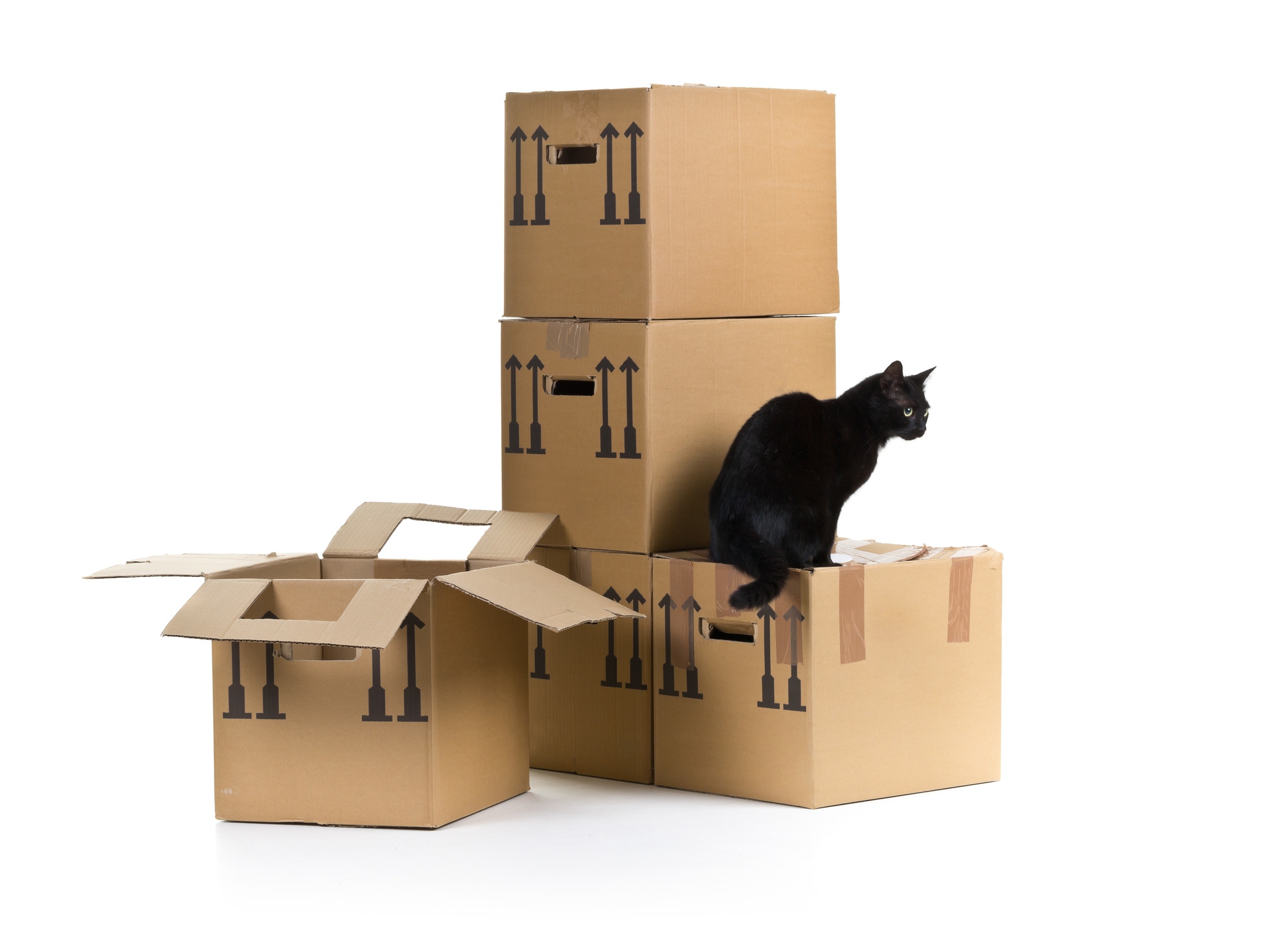Millions of moves take place each year in the US, but they don’t always go smoothly. According to a survey from Move.org, 38% of survey respondents said moving is more stressful than ending a relationship – and with good reason.
Moving can be time-intensive, costly, and chaotic. Even if you hire movers, it’s not always a fail-safe process. Based on that same survey, about 70% of Americans who used professional movers said they were charged more than their initial quote, sometimes by $1,000 or more.
Over half of the people who used professional moving services said they felt “scammed.” People have also experienced delays from truck shortages, packing materials, and moving services overall.
Paying for a moving company is supposed to relieve your stress, not add to it. But scams and shoddy practices do happen, so it’s crucial to work with a quality moving company that you can trust with your treasured property.
Whether you’re not sure how to hire movers or you’re overwhelmed by the options, here are 12 tips for hiring quality movers for a stress-free, secure experience.
1. Research Companies
You’re entrusting a professional mover with most – if not all – of your possessions. You shouldn’t trust the work to just anyone. Do some informal research to see which moving companies have a strong reputation for professional work and good customer service.
Once you narrow down your choices, check into the companies with the Better Business Bureau (BBB). Complaints happen, but if you see a pattern of complaints without proper actions to rectify them – or worse, no response from the company – cross it off your list.
2. Ask Your Social Network for Referrals
Most people have moved at least once, so you likely have people in your life who can give you referrals for moving companies. They have no investment in the companies, so you’ll get honest reviews to inform your decision.
If your friends and family don’t have good recommendations, check into vetted movers from associates like the American Moving and Storage Association. When you speak to companies, ask them for references from at least three people who have used their services within the past few months, then contact those customers to hear about their experiences.
3. Check for Licensing
Before making any decisions about a professional mover, ensure they’re properly licensed. The licensing requirements for movers can vary by state and between local or long-distance moves, but the common requirements include:
A commercial driver’s license
A state license
A US Department of Transportation (USDOT) number
Federal Motor Carrier Safety Administration (FMCSA) registration
A federal license
Business licensing, including registration with the secretary of state and a federal tax identification number
Some companies will seek out a voluntary moving certification, indicating that they’re committed to quality service. Licensed movers also have stringent requirements for employee background checks, personal training, and quality assurance.
It may be tempting to take a bargain on moving services, but it’s not worth the risk when it comes to your personal belongings and assets. Moving scams are rampant, but verifying insurance will help you ensure that the company is legitimate.
4. Look at Their Years of Experience
Hiring an experienced mover that’s been in business for years is generally better. They have the knowledge and expertise to streamline the experience and adapt to obstacles along the way for a stress-free process.
Another benefit of hiring an experienced company is you will have a lot of reviews from customers to inform your decision. Businesses that have been operating for a long time often have satisfied customers.
However, be wary of a company that’s been around for a while with a lot of rebrands. Some companies avoid reputational damage or BBB assessment by operating under a variety of names. Check into the business to ensure that it has a consistent full name and local address on all paperwork, the website, and licenses.
5. Check Online Reviews
Check online reviews on third-party websites like Google Business Profile, Angi, and Yelp for real reviews from past and current customers. High-quality movers will have an excellent positive-to-negative reviews ratio. They should have an overall rating of above 4 out of 5 stars.
Avoid businesses with a lot of negative reviews, as there will be a higher chance of you receiving subpar services. Problems happen, but a company that has more negative reviews than positive ones isn’t serving its customers.
Steer clear of ones with no reviews as well. The company may be completely new or they may have had to change their name to start fresh.
6. Evaluate Their Services (And Fees)
Moving companies offer more than loading boxes and driving them from point A to point B. Some movers offer value-added services like supplying shipping materials and packing and unpacking your belongings, shuttle service, additional pickups and deliveries, and more.
For example, do you need to move specialty items, such as a grandfather clock or piano? Do you need the mover to disassemble and reassemble furniture? Would it be more convenient to have your things packed and unpacked for you?
There are full-service moving companies that can handle every aspect of your move, but make sure you know what you’re getting into. Some companies will charge additional fees for each extra service, and you should know what those are in advance.
In addition, some companies work with third-party providers to handle some services, such as transporting specialty items. If that’s the case, make sure you know the name of the provider and can check into them.
7. Check the Speed of Service and Availability
If your move is on a tight timeline, you will need a moving company that can accommodate your tight schedule.
The availability of movers will depend on what time of year you're relocating. For instance, if you're moving in the summer, that's the peak season for professional moving companies. With demand high, you may not be able to book a mover on the dates you want.
If possible, start your research early and plan your move with as much notice as you can. This gives you more flexibility to choose the company, dates, and services that work best for you.
8. Evaluate the Insurance and Protection Plans
If you have renter’s or homeowner’s insurance, you only have protection for your belongings while they’re in your home or rental – not on the road. You may want to invest in moving or relocation insurance to ensure you’re covered for loss or damage.
All professional moving companies are required to carry insurance and assume liability for the value of the goods they transport, but that doesn’t apply to every scenario. For example, if you elect to pack your own belongings and something breaks from improper packing in transit, the moving company may not be liable for that.
There are two levels of liability, however, and you need to understand the protection you’re paying for.
Full-value protection is the most comprehensive plan for your property and includes full replacement value. If any of your possessions are lost, damaged, or destroyed in transit, the moving company must either:
Repair it to the same condition as when it was received or compensate you for the repair costs.
Replace it with an item of a kind and like quality or pay you the cost of replacement.
With this option, movers can limit their liability for loss or damage to items of extraordinary value unless you specifically list them. Examples of items of extraordinary value include items with a value exceeding $100 per pound, such as china, furs, antiques, silverware, and electronics.
An alternative level of liability is a no-cost option, but you only have minimal protection. The moving company assumes no liability for more than $0.60 per pound, per item. For example, if your 30-pound television with a $1,000 value was lost or severely damaged, the moving company would be liable for just $18.
Naturally, this can lead to substantial loss with items that are lightweight but high value, such as jewelry or artwork.
9. Understand Your Contract
The moving contract or bill of lading is a crucial part of the transaction and is legally binding. Don’t sign a blank contract. Make sure everything is in writing, including the estimate, extra fees, pickup and delivery dates, and your inventory list. It should also have the name and address of the company, the accepted payment methods, and liability information.
If you have any questions about the contract, items are missing, or information is vague, challenge it. Moving company scams happen, so you want to be sure that you’re working with a legitimate company before you sign your rights away.
Once you sign, get a copy for your records. If there’s a dispute, the only proof you have for your case is the contract.
10. Don't Pay a Huge Deposit
Deposits are common with many services, but it should only be a small amount. Moving companies typically ask for around 15 or 20% of the final moving costs. If you have a huge deposit, that’s a red flag.
Scammers will ask for large sums of money upfront and will disappear without providing actual moving services. They may even take off with your belongings. You should also be wary of companies that insist on cash-only transactions since you have little recourse if they don’t provide your service.
11. Ask for Quotes
Moving can be expensive. Getting a quote or estimate from the moving company helps you budget your move and prepare for the expense. Ideally, you should get estimates from at least three companies to comparison shop.
However, ask if the estimates are binding or nonbinding. Binding estimates are a guaranteed price for the move and all extras and services. Nonbinding estimates mean the company can’t charge you for overages to the original estimate.
There are three options for moving estimates: Binding, nonbinding, and nonbinding not-to-exceed estimates.
A binding estimate sets a flat rate for moving services based on the inventory of your property, which will need to be inventoried. You can self-report your items, but it’s best to do an in-home consultation to ensure that your initial moving estimate is your final price.
A non-binding estimate offers a rough quote on what the move will cost, but the price can change. You don’t need inventory in advance, but you could end up with a lot of extra charges once it’s weighed. Non-binding estimates are good for cost comparisons as long as you’re aware that the price can change.
Though less common, nonbinding not-to-exceed estimates are available with some moving companies. This estimate is based on the total weight of your item inventory and will not increase from the quoted amount – even if your inventory was assessed incorrectly. You may even end up with a lower final price than the initial estimate.
Never accept a “guaranteed” quote, a verbal quote, or a quote provided over the phone. Reputable moving companies will always have written estimates and contracts.
You should never have to pay to get a quote. This is an unscrupulous practice, as it puts money in a mover's pocket without providing a service. Also, beware if they say the fee is waived if you do business with them. There will likely be more headaches or hidden fees down the line.
You should also be cautious with quotes drastically below what other companies offer. This is common with scams. The movers will offer a low and tempting quote to sway customers, then they increase the price significantly later while holding your property hostage. If you don’t pay, you can’t get your belongings.
12. Consider the Distance
The distance you're moving will matter when hiring movers. For example, if you're moving within the city or state, you may want to choose a local moving company. They're more familiar with the local areas, plus they're able to offer some good discounts when compared to bigger companies.
On the other hand, if you're moving across the country, then you may want to pick a national company. These are long-distance movers who have handled numerous other moves like yours, so you can trust that they'll make your relocation as smooth as possible.
Hiring Movers Made Easy
Hiring movers can seem like a daunting task. But if you get quality movers to help you out, then you can focus more on being excited rather than anxious.
Use our tips to take a huge burden off your shoulders and work with a reliable moving company that won’t cost an arm and a leg. If you want to prepare for your relocation budget, use our moving cost estimator to plan your trip.
Need to ship your car to your new home? Contact us to get a quote for your auto transport!



